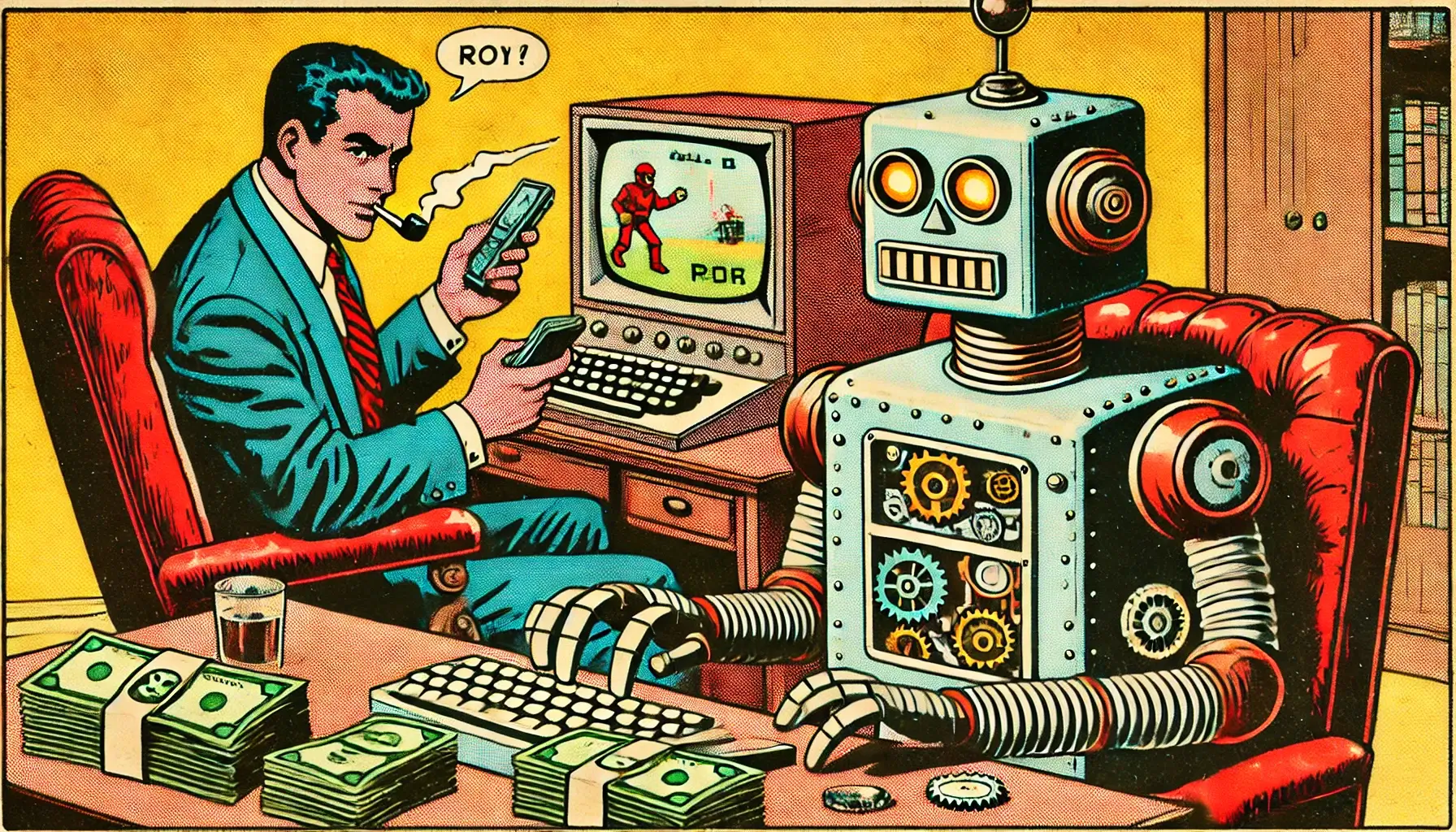AI Coding In Gaming and Myth of Total Automation

Anthropic CEO Dario Amodei recently claimed that AI could be writing 90% to 100% of all code within the next 3–6 months. That statement is not just unrealistic – it’s logically broken. If AI were truly writing 100% of code, it would mean human developers were completely obsolete, and AI itself would be in control of every system, without human oversight or intervention. That’s not how software, or reality, works.
His assertion also ignores the deeper issue: coding isn’t just an area where AI is advancing – it’s an area where AI has to grow the most. There’s a fundamental difference between natural language and programming logic, and while AI has gotten impressive at generating text, code is not just another form of language – it is rigid, unforgiving, and precise in a way that English will never be.
Why AI in Game Development is a Tool, Not a Takeover
In video game production, coding isn’t the fun part – it’s the necessary part. Even as someone who doesn’t yet fully understand the depths of programming, I want to understand what I’m looking at. I want to be able to debug, assist, and write my own code. But the learning curve is steep.
If I were doing business with a country that spoke a language I didn’t know, I’d use Google Translate at first. Over time, if we worked well together, I’d eventually learn their language out of respect. That’s how I see my relationship with coding – I’m using AI as a bridge, but I’m also making the effort to “speak its language.” My approach isn’t about avoiding work; it’s about expanding my ability to create.
Many people assume AI can just automate game development, but that’s a fundamental misunderstanding of what makes games compelling. There’s a reason AI-generated games often feel hollow or uninspired:
- Context Matters – AI can generate code, but it doesn’t understand why certain mechanics exist. If you tell it to create a “fun platformer,” it has no intuitive grasp of what makes jumping feel satisfying.
- Debugging is Still a Nightmare – AI can spit out code, but when something goes wrong, it often fails to explain why. Debugging and refining mechanics are core parts of game development that still require human intuition.
- Creativity is Not a Dataset – AI can remix existing ideas, but it doesn’t create novel mechanics. It won’t suddenly invent a new kind of movement system or an original enemy AI behavior – that still requires a human vision.
True Game Development is in the Process
Something I’ve come to appreciate in my own journey is that game developers are the first players of their own games. If a game isn’t enjoyable to create, test, and refine, it won’t be enjoyable to play. AI can help speed up certain aspects of development, but it can’t replace the human experience of designing for fun.
I’ve explored text-based games where human moderators are replaced with AI-driven dice-based mechanics, reminiscent of old AOL chatroom RPGs. I’ve considered games where combat is dictated by descriptive text rather than button presses. These ideas may not have AAA-level graphics, but they reflect a deeper interest in how AI can create new ways to play rather than just regurgitate the past.
The Future of AI in Gaming
AI won’t replace developers, but it will lower barriers to entry. More people who previously lacked coding skills – like myself – will be able to bring their ideas to life faster. The key is to use AI to enhance creativity, not automate it out of existence.
People keep asking whether AI will “change gaming.” The real question is: who will use AI to create something original, rather than just copying what already exists? AI isn’t the creator – we are.
